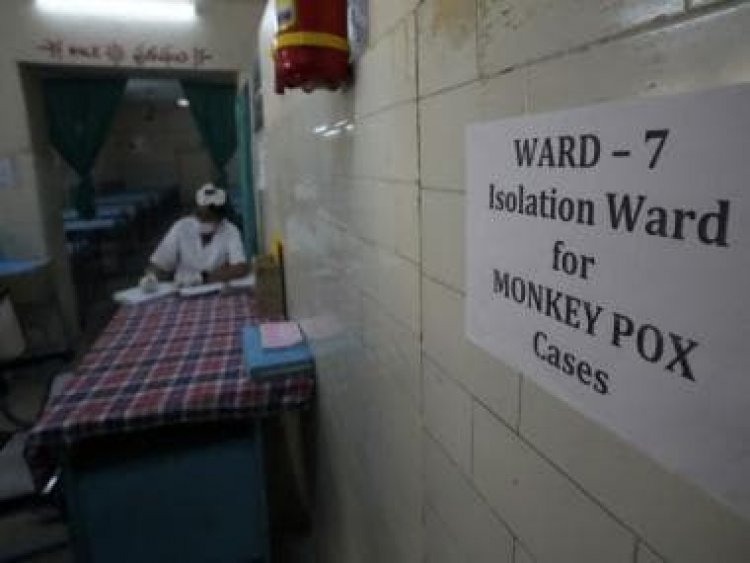WHO declares monkeypox a global health emergency: What does this mean?
WHO declares monkeypox a global health emergency: What does this mean?

The World Health Organization has declared the gradually growing monkeypox outbreak as a public health emergency of international concern (PHEIC).
It announced the highest alert level after the infection has affected nearly 16,000 people in 72 countries, including India.
"I have decided that the global monkeypox outbreak represents a public health emergency of international concern," WHO chief Tedros Adhanom Ghebreyesus said at a press conference on Saturday.
He said a committee of experts who met on Thursday was unable to reach a consensus, so it fell on him to decide whether to trigger the highest alert possible.
"WHO's assessment is that the risk of monkeypox is moderate globally and in all regions, except in the European region where we assess the risk as high," he added.
What is the current status of monkeypox?
A surge in monkeypox infections has been reported since early May outside the West and Central African countries where the disease has long been endemic.
As per the US Centers for Disease Control and Prevention (CDC), monkeypox has affected over 15,800 people in 72 countries till 20 July.
Must read: As India confirms fourth case of monkeypox, should we be worried?
India remained untouched by the infection till mid-July. The first case was reported on 14 July in Kerala, after a man who arrived from the UAE tested positive. Later, two more cases were reported from the southern state.
On Sunday, India reported its fourth monkeypox case in Delhi in a 34-year-old man with no history of foreign travel. However, the man had attended a stag party recently in Manali in Himachal Pradesh, official sources told PTI.
The first case of Monkeypox was detected in Delhi. The patient is stable and recovering.
There's no need to panic. The situation is under control.
We have made a separate isolation ward at LNJP. Our best team is on the case to prevent the spread and protect Delhiites.
— Arvind Kejriwal (@ArvindKejriwal) July 24, 2022
What does the WHO’s declaration as a PHEIC mean?
The WHO declares a PHEIC for “an extraordinary event which is determined to constitute a public health risk to other States through the international spread of disease and to potentially require a coordinated international response”.
Monkeypox is one of the several PHEICs the WHO has declared over the years. For the current situation, it is collaborating with health authorities to prevent further spread of the disease.
The WHO said that it is issuing guidance to help countries on surveillance, laboratory work, clinical care, infection prevention and control, as well as risk communication and community engagement to inform communities at risk and the broader general public about monkeypox and how to keep safe.
“We are also working closely with countries in Africa, regional institutions, and technical and financial partners, to support efforts to bolster laboratory diagnosis, disease surveillance, readiness and response actions to prevent further infections,” it said.
How does monkeypox spread?
The Centers for Disease Control and Prevention (CDC), America’s health protection agency, states that the disease that causes pimple- or blister-like lesions and flu-like symptoms spreads through close contact.
That includes direct physical contact with lesions as well as “respiratory secretions” shared through face-to-face interaction, and touching objects that have been contaminated by monkeypox lesions or fluids. The virus may also pass to a foetus through the placenta.
It is also possible for people to get monkeypox from infected animals, either by being scratched or bitten by the animal or by preparing or eating meat or using products from an infected animal.
Dr John Brooks, the CDC’s chief medical officer of HIV prevention, told CNN that monkeypox is not a sexually transmitted infection in the typical sense, but it can be transmitted during sexual and intimate contact, as well as with personal contact and shared bedding and clothing.
Also read: Monkeypox cases concentrated among men who have sex with men: WHO
The US health agency also added that it’s not clear whether monkeypox can spread through semen or vaginal fluids, but the virus can’t spread asymptomatically — which means that people who do not have monkeypox symptoms cannot spread the virus to others.
According to the first major peer-reviewed paper to analyse a large set of cases of the virus, the global outbreak is primarily being driven by sex between men.
Jennifer Nuzzo, an epidemiologist at Brown University, of the new study, which was published Thursday in the New England Journal of Medicine, said: “Infections are so far almost exclusively occurring among men who have sex with men. The clinical presentation of these infections suggest that sexual transmission, not just close physical contact, may be helping spread the virus among this population.”
How to protect yourself?
The CDC has advised people to exercise caution in situations where one can't maintain some sense of personal space and bumping into others is impractical. In places where clothing is minimal and you could experience that contact, such as crowded raves and clubs, the risk goes up.
Secondly, people have been advised to clean and disinfect environments that could have been contaminated with the virus from someone who is infectious regularly.
Also, if you think you might have monkeypox, you can act to protect others by seeking medical advice and isolating yourself from others until they have been evaluated and tested.
With inputs from agencies
Read all the Latest News, Trending News, Cricket News, Bollywood News,
India News and Entertainment News here. Follow us on Facebook, Twitter and Instagram.
What's Your Reaction?

























































